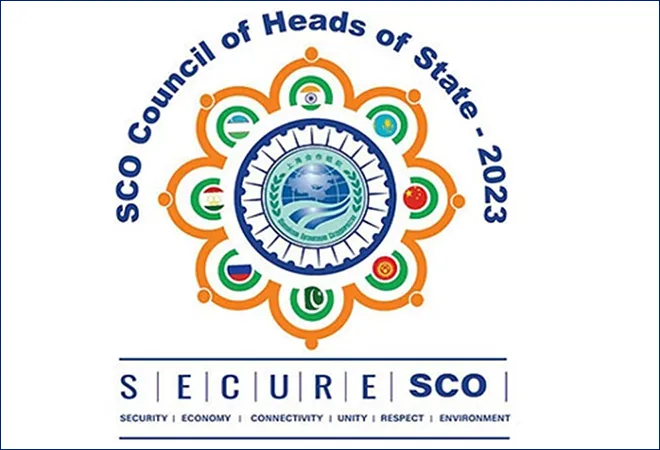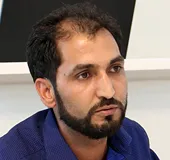On 28 April, New Delhi hosted a Shanghai Cooperation Organisation (SCO) member countries’ defence ministers conclave to discuss regional peace and security, counterterrorism efforts and effective multilateralism. The conclave, chaired by India’s defence minister Rajnath Singh, saw the
in-person participation of his counterparts from Russia, China, Iran, Belarus, Uzbekistan, Kazakhstan, Kyrgyzstan and Tajikistan. The special defence advisor to the Prime Minister of Pakistan joined virtually.
The ministers discussed regional and international security under the SCO charter, signed a protocol, expressed their will to make the region “
secure, stable & prosperous”, and unanimously condemned all forms of terrorism. Mr Singh urged the SCO member countries to collectively work towards eliminating terrorism and hold to account its supporters. He further urged the member countries "
to effectively deal with terrorism" as a top priority and make the SCO a more credible and robust international organisation. He also confirmed New Delhi’s commitment to building the defence capacities of SCO members and the “
multidimensional welfare of the region”. In a veiled reference to China’s aggression on the Line of Actual Control (LAC), he also called for a robust regional cooperation framework respecting the
territorial integrity and sovereignty of all member states.
India was given observer status in 2005 and gained the SCO’s full membership at the Asthana summit in June 2017. From its inception as a full member,
India not only supported strengthening the core agenda of SCO on terrorism and radicalism but reinforced its commitment to regional connectivity, stability, territorial integrity and sovereignty. New Delhi has always supported “
an Afghan-led, Afghan-owned and Afghan-controlled process for enduring peace and reconciliation” in the conflict-marred country. India has steadfastly used its diplomatic capital to campaign for strengthening cooperation and used the SCO platform to collaborate with regional counterparts. In 2018, Prime Minister Narendra Modi in Qingdao, China, coined the acronym
SECURE to highlight the pressing regional challenges facing the SCO. Where S stands for security of citizens, E - economic development for all, C - connecting the region, U - uniting the people, R - respect for sovereignty and integrity, and E for environmental protection.
India not only supported strengthening the core agenda of SCO on terrorism and radicalism but reinforced its commitment to regional connectivity, stability, territorial integrity and sovereignty.
Prime Minister Modi also stressed that lasting peace in Afghanistan could only be achieved via the Afghanistan Contact Group (ACG) under the auspices of SCO. The ACG was created in 2005 to maintain regional cooperation with Kabul on issues of mutual interest. The group became defunct after violence escalated in West Asia. Though the ACG was revived in 2017, the divergent interests and trust deficit forced the SCO member states to create other regional multilateral consultations on Afghanistan. Furthermore, some SCO member states used Afghanistan and the Taliban for their own geo-economic and geo-strategic interests against the
West and also against each other. Some member countries used terrorism as a foreign policy tool to hinder India's growing stature in the Eurasian region.
State-sponsored terrorism is India’s biggest challenge, and the recent terror attack in the Poonch district of Jammu and Kashmir, where
five army soldiers died, should be an eye-opener for SCO member states. India needs to sensitise the influential members of SCO on Pakistan's state-sponsored terrorism. The dreaded global and regional terror outfits, such as al-Qaeda, Islamic State of Khorasan Province (ISKP), Lashkar-e-Taiba (LeT), Jaish-e-Mohammed (JeM), Islamic Movement of Uzbekistan (IMU) to secure the SCO and greater Eurasian region from these radical extremist forces. The issue resonates with China, Russia and Central Asian Republics (CARs), which are facing increasing threats. Another common challenge to the SCO region is the illicit drug trade emanating from the Af-Pak region. In 2021, more than 80 per cent of opium and heroin supplies originated from Afghanistan via different routes to the global opium market. The greater involvement of terror outfits in the narcotic trade has sprung new geo-political challenges to the SCO. It has become a significant funding source for anti-state activities by the region's dreaded terror groups and radical Islamists.
A volatile Afghanistan and terror sanctuaries in the Af-Pak region have created many bottlenecks in connectivity projects initiated by SCO member states and other regional countries of Eurasia. Additionally, Pakistan has impeded strategic, economic and cultural interests by blocking by refusing to facilitate connectivity via its territory. For instance, Turkmenistan-Afghanistan-Pakistan-India (TAPI) pipeline has been stalled since 2006 due to instability in Afghanistan and hindrances created by Pakistan. Conversely, Islamabad has facilitated the China-Pakistan Economic Corridor (CPEC), a flagship Belt and Road Initiative (BRI) with US$62 billion worth of investments. CPEC s Pakistan-Occupied Kashmir (POK), violating India's sovereignty and territorial integration. However, India has explored new connectivity projects in the region like Chabahar port in the Iranian province of Sistan-Balochistan, and the 7,200 km long International North-South Transport Corridor (INSTC) between Russia, Iran and India. India also became a member of the Ashgabat Agreement in 2018. New Delhi needs to use the SCO forum, including Chabahar port, into INSTC to expand its growing influence over Eurasia and
“to make efforts to develop reliable, resilient and diversified supply chains” in the region”.
A volatile Afghanistan and terror sanctuaries in the Af-Pak region have created many bottlenecks in connectivity projects initiated by SCO member states and other regional countries of Eurasia.
Last but not least, there continues to be a perception in the West that SCO is an anti-West forum. However, India's growing economic and political stature at the global level in the era of multi-vector foreign policy has made New Delhi a potential player in turning SCO into a development oriented organisation in Eurasia rather than an anti-west alliance. That is why New Delhi has been stressing maintaining peace and security based on
UN Charter provisions to ensure the collective prosperity of the region.
India has advocated win-win cooperation within the SCO for regional or trans-regional connectivity, regional security and defence collaboration, combatting state-sponsored terrorism, and a peaceful, prosperous Afghanistan with an inclusive government and peaceful global order without rival blocks. The challenge for New Delhi, going forward, will remain one of using its substantial diplomatic capital toward making the Eurasian region a driver of economic growth and prosperity within the ambit of SCO.
This commentary originally appeared in Financial Express.
The views expressed above belong to the author(s). ORF research and analyses now available on Telegram! Click here to access our curated content — blogs, longforms and interviews.




 PREV
PREV



